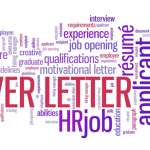By BRIAN BAKST
Associated Press
ST. PAUL, Minn. (AP) _ Tens of thousands of Minnesota workers have big raises coming their way, courtesy of a new minimum wage law that Gov. Mark Dayton signed Monday, which will take the state from one of the nation’s lowest rates to among the highest.
At a ceremony in the Capitol’s Rotunda, Dayton hailed the hourly jump of more than $3 spread over the next few years as providing “what’s fair” for hard work put in. He said he has been stunned by GOP resistance _ it passed the Legislature with only Democratic votes _ to increasing the guaranteed wage from $6.15 per hour now to $9.50 by 2016 and then tie it to inflation.
“We’re not giving people any ticket into the upper-middle class,” Dayton said. “We’re giving them hope.”
Minnesota goes from having one of the nation’s lowest minimums to among the highest. With federal wage legislation stuck in Congress, states are rushing to fill the void. California, Connecticut and Maryland have passed laws pushing their respective wages to $10 or more in coming years, and other states are going well above the federal minimum of $7.25 per hour. Not all Minnesota workers have qualified for the federal minimum, which is required if someone engages in an interstate transaction such as swiping a credit card at the cash register.
For large Minnesota employers, mandatory hourly pay will climb to $8 in August, $9 a year later and $9.50 in 2016. Smaller employers that have gross sales below $500,000 will also have to pay more, though their rate reaches only $7.75 per hour by 2016. There are also carve-outs for teen workers or those getting trained into new jobs.
All told, some 325,000 workers could be in line for a raise at some point during the phase-in period.
Jacquita Berens, a single mother of three from Robbinsdale, said she’s been working three jobs to barely get by. Standing next to Dayton, she said the hike will give her more money for groceries, gas and other essentials and maybe allow her to afford extracurricular activities for the kids.
“I work incredibly hard but constantly fall behind,” Berens said. “Those of us working low-wage jobs are willing to work hard. We want to get ahead so we are not in survival mode.”
Business groups, such as those representing restaurants and retail shops, have warned that Minnesota would be out of step with its neighbors that are all at $7.25 per hour. Republican Rep. Pat Garofalo, R-Farmington, called the increase “irresponsible” and argued it will drive up unemployment as companies adjust.
The law authorizes automatic raises in the years to come that will compensate for inflation. Unless state officials take steps to suspend the raises, minimum wage pay could rise by up to 2.5 percent annually beginning in 2018. Those increases could be suspended if rough economic conditions sweep in, but catch-up raises can be ordered later.











